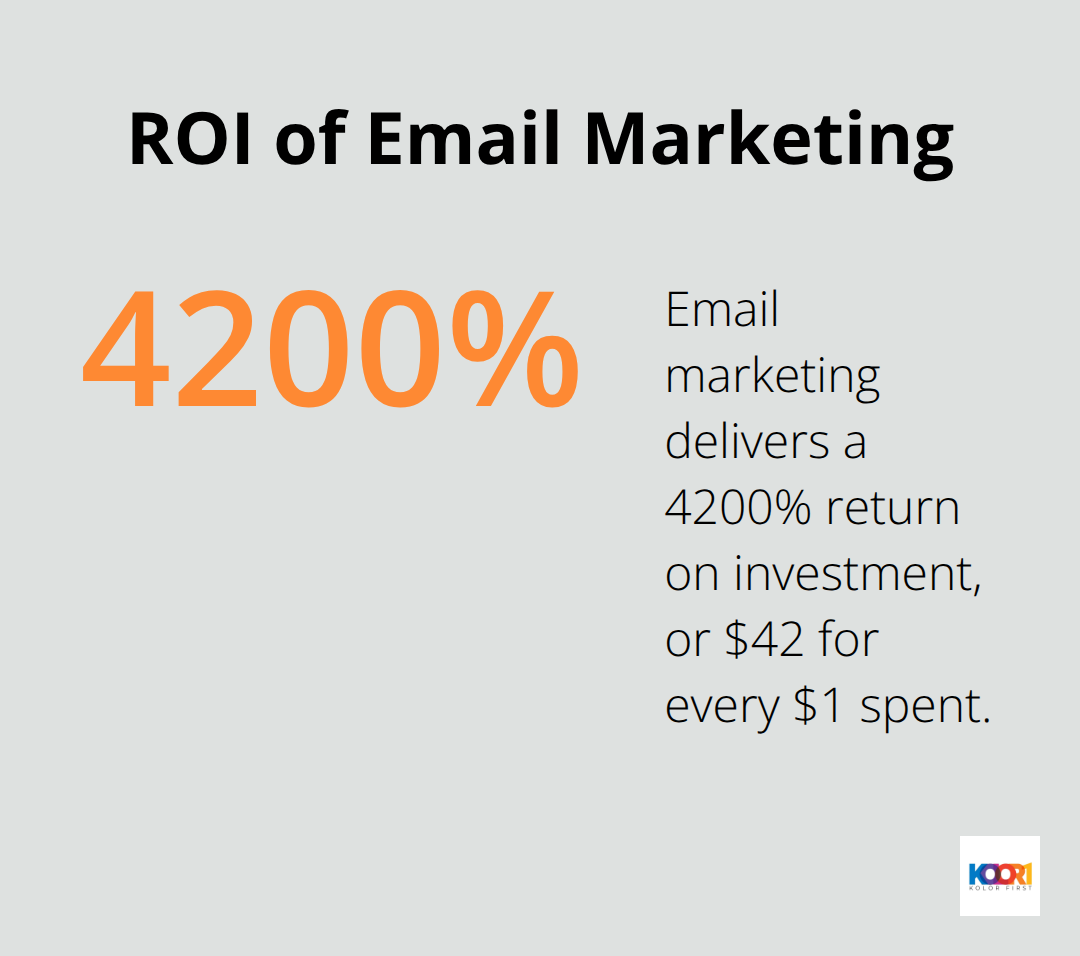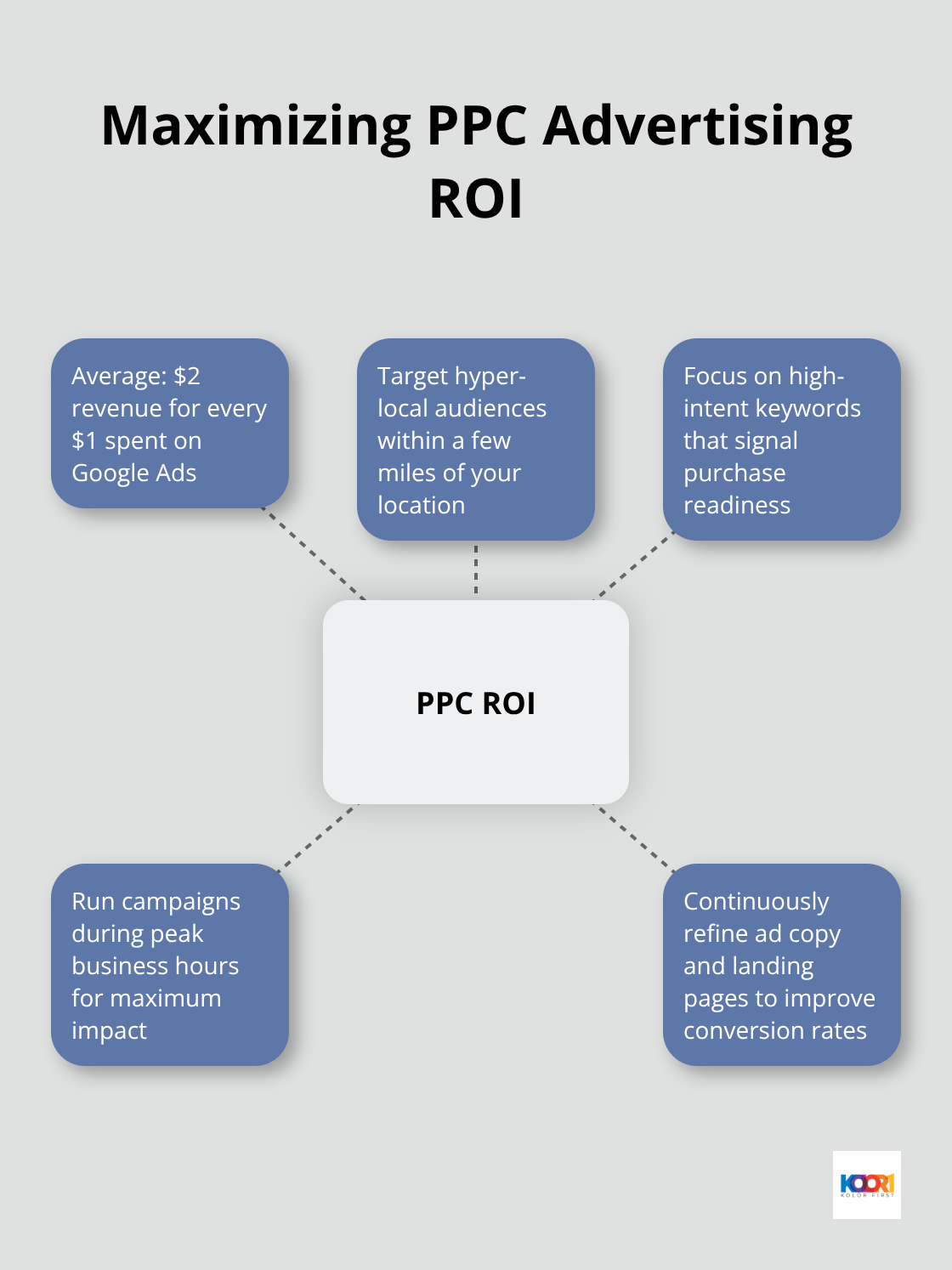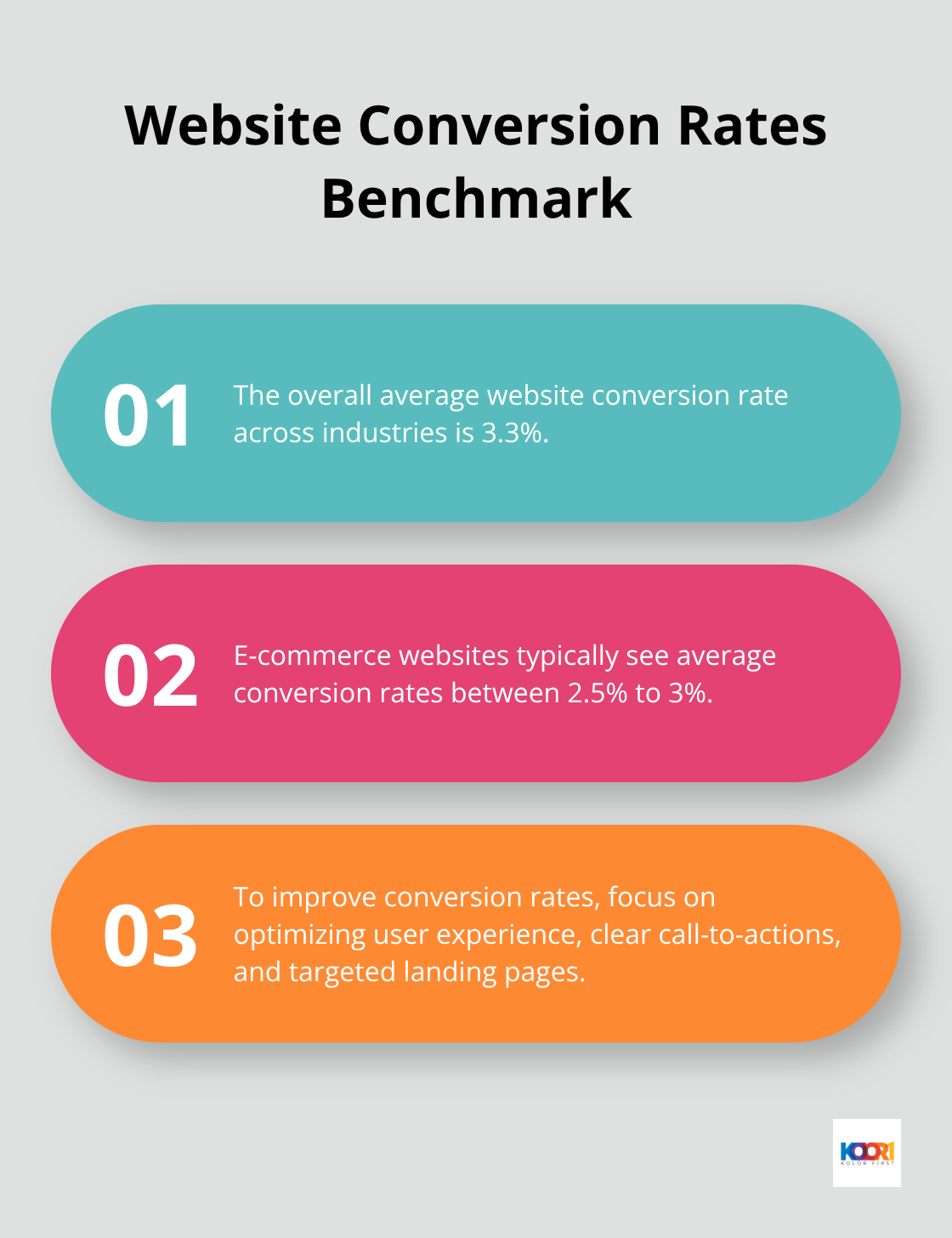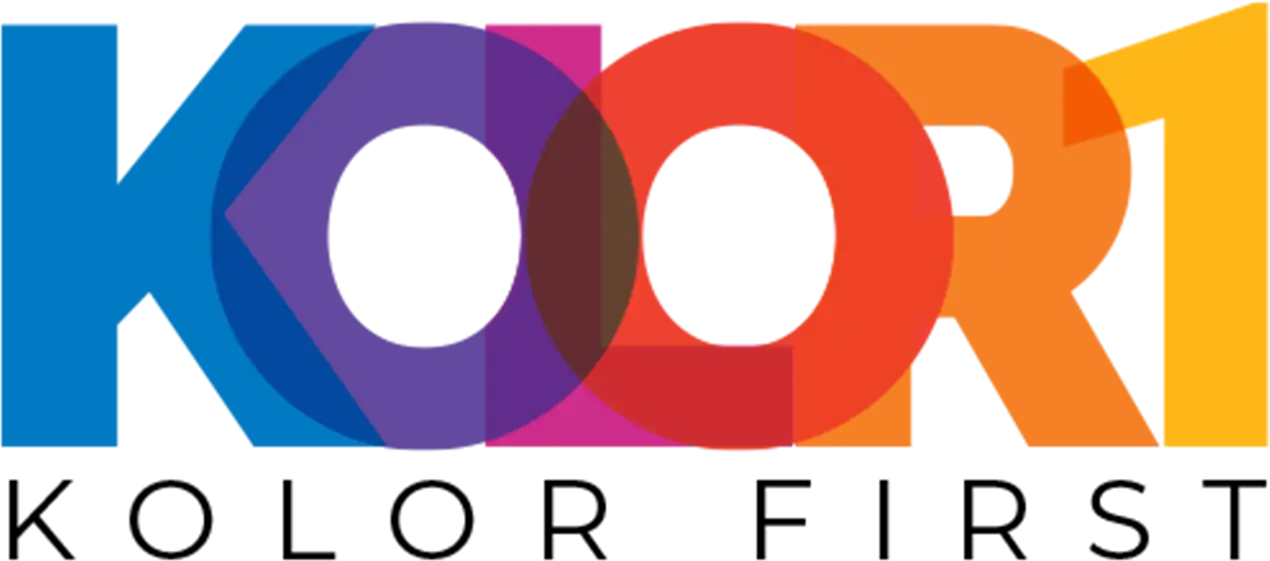Small companies face unique challenges when competing against larger businesses with massive marketing budgets. Digital marketing for small companies levels the playing field by offering cost-effective ways to reach target audiences.
We at Kolorfirst LLC understand that smart strategy beats big spending every time. The right digital marketing approach can generate significant returns without breaking the bank.
Which Digital Marketing Strategies Actually Work for Small Companies
Social Media Marketing on a Budget
Social media marketing transforms small company visibility when you execute campaigns with precision rather than broad spending. Facebook and Instagram advertising allows you to target audiences within a 5-mile radius for as little as $5 daily, which makes local customer acquisition affordable for most businesses.
HubSpot research shows small businesses that use social media see significant increases in lead generation compared to those that rely solely on traditional methods. The key lies in your choice to focus on one platform initially and master it completely before you expand elsewhere.
Content Marketing for Local Audiences
Content marketing drives local engagement through neighborhood-focused topics and community involvement stories. Small businesses that publish weekly blog posts receive more links to their websites according to HubSpot data, which significantly boosts search rankings.
Local content performs exceptionally well when you address specific community challenges or highlight nearby events. This approach builds trust with local customers while you establish your business as a community resource (rather than just another vendor).
Email Marketing Automation Tools
Email automation tools like Mailchimp or Constant Contact cost under $20 monthly for most small companies while they deliver $42 return for every dollar spent based on Email Marketing Institute research. These platforms handle welcome sequences, birthday promotions, and follow-up campaigns automatically.
You free up time for core business activities while you maintain consistent customer communication. The automation runs in the background (24/7) and nurtures leads without constant manual intervention, which makes it perfect for resource-constrained small businesses.

These foundational strategies create the groundwork for success, but you need cost-effective channels to amplify your reach without exhausting your budget.
Cost-Effective Digital Marketing Channels
Google My Business Optimization
Google My Business optimization costs nothing but delivers massive local visibility returns. Local SEO strategies can significantly increase foot traffic for small businesses according to BrightLocal research. You must claim your free Google My Business account immediately and complete every section with accurate information, hours, photos, and service descriptions.
Active management through regular posts, customer review responses, and photo updates signals Google that your business stays current and engaged. Businesses that respond to reviews see 30% higher customer trust according to Zocdoc data, which translates directly into more sales.
Local SEO Techniques
Local SEO outperforms expensive advertising when you target neighborhood-specific keywords and location-based content. Search terms like “dentist near downtown Springfield” or “coffee shop Main Street” generate higher conversion rates than broad keywords because they capture purchase-ready customers.
Small businesses must focus on building citations across local directories like Yelp, Yellow Pages, and industry-specific platforms. Consistent name, address, and phone number information across all platforms tells search engines your business operates legitimately in your area (which improves local rankings significantly).
Pay-Per-Click Advertising with Small Budgets
PPC advertising works effectively with budgets as small as $10 daily when you target hyper-local audiences and specific services. Google Ads allows you to set geographic boundaries within a few miles of your location, which prevents budget waste on irrelevant clicks.
Businesses make an average of $2 in revenue for every $1 they spend on Google Ads, but precise targeting improves these ratios significantly. Focus your ad spend on high-intent keywords during peak business hours rather than running broad campaigns around the clock (this maximizes your limited budget impact).

These cost-effective digital marketing channels generate measurable results, but you need proper tracking systems to understand which strategies deliver the best returns for your specific business.
How Do You Track Digital Marketing Success
Small businesses waste thousands of dollars on digital marketing because they track vanity metrics instead of revenue-driven data. Website traffic means nothing if visitors don’t convert into customers, and social media followers become irrelevant without sales growth. Google Analytics provides free insights into website traffic and user behavior, which makes it the essential starting point for tracking marketing effectiveness.
Track Revenue-Connected Metrics Only
Website conversion rate stands as the most important metric for small businesses because it directly connects marketing efforts to sales results. The overall average conversion rate is 3.3%, with e-commerce averaging 2.5% to 3%. Email open rates above 25% and click-through rates that exceed 3% signal engaged audiences according to Campaign Monitor research. Social media engagement rates should focus on comments and shares rather than likes (since these actions indicate genuine interest in your products or services).

Use UTM Codes for Accurate Attribution
UTM codes reveal which marketing channels generate actual sales rather than just website visits. Google Analytics shows whether customers arrived through Facebook ads, email campaigns, or organic search results when you implement UTM parameters correctly. Small businesses often discover that their assumed best-performing channel actually produces the lowest conversion rates. This data prevents budget allocation mistakes that could cost thousands in wasted advertising spend.
Calculate True ROI Through Revenue Tracking
ROI calculation requires you to track customer lifetime value rather than single purchase amounts. A customer who spends $50 initially but returns for $200 in additional purchases over six months generates $250 total revenue. Email marketing delivers strong returns when you track long-term customer behavior rather than immediate sales only.
Monitor Customer Acquisition Cost
Customer acquisition cost tells you exactly how much you spend to gain each new customer across different marketing channels. You calculate this metric by dividing total marketing spend by the number of new customers acquired during the same period. Businesses that track acquisition costs identify their most profitable marketing channels and eliminate wasteful spending on underperforming campaigns. Digital marketing tools help automate this tracking process and provide detailed performance insights across all channels.
Final Thoughts
Digital marketing for small companies succeeds through focused execution rather than scattered efforts across multiple channels. Social media targets local areas effectively, content addresses community needs directly, and email automation tools generate measurable returns without massive budgets. Google My Business optimization and local SEO techniques provide free visibility that competes directly with larger competitors.
Start with one platform and master it completely before you expand elsewhere. Claim your Google My Business account today and optimize every section with accurate information. Set up basic email automation through affordable platforms that cost under $20 monthly while they deliver $42 return per dollar spent.
Track conversion rates and customer acquisition costs rather than vanity metrics like website traffic or social media followers. Use UTM codes to identify which channels actually generate sales versus those that only create awareness (instead of just measuring impressions). We at Kolorfirst LLC help businesses execute these digital marketing strategies with precision and measurable results.






